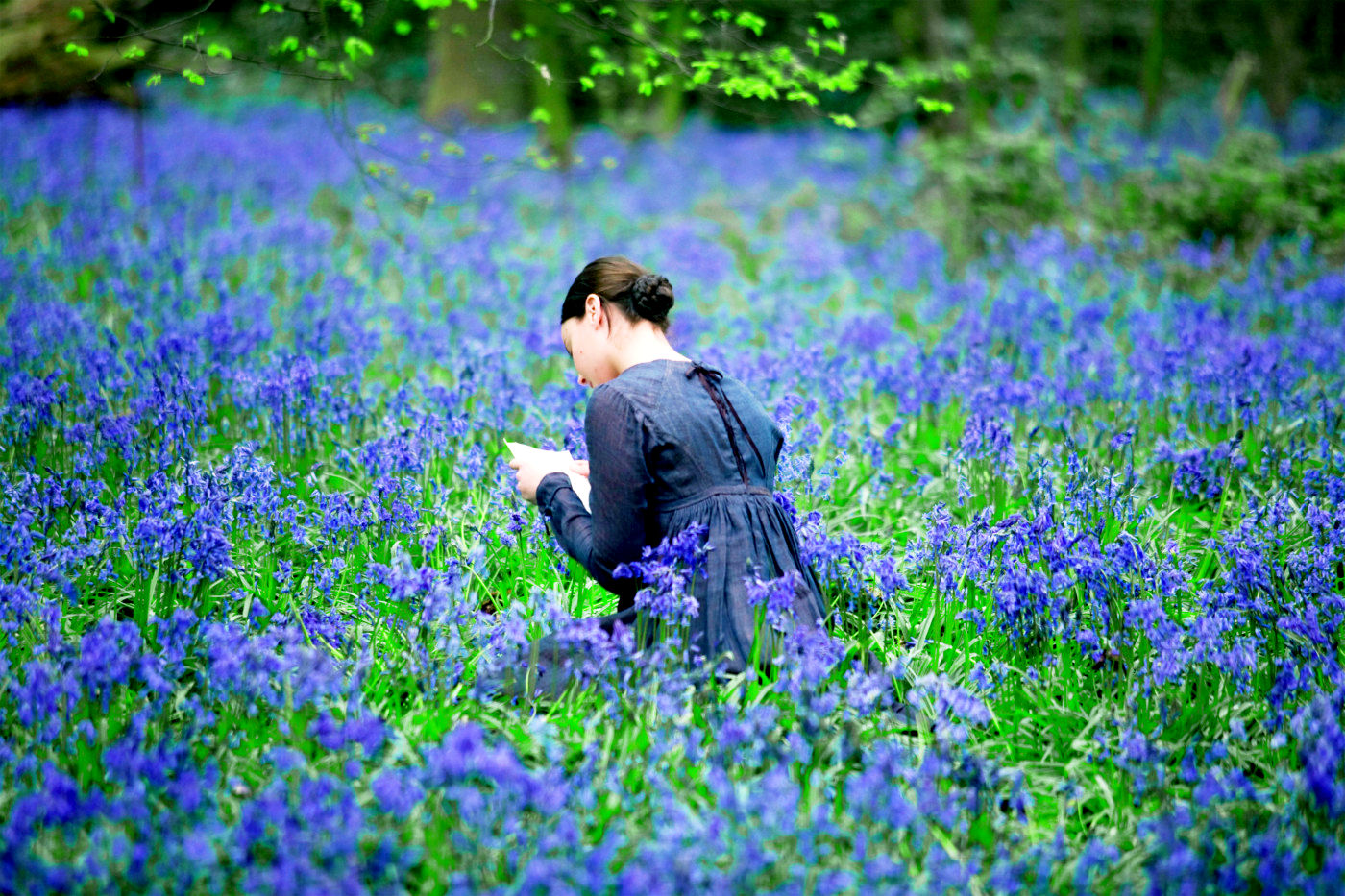Though I've never experienced real
grief, I have to admit as long as I'm on the subject of loss, that I have mourned people as if they were dead when in reality I'd only lost the ability to see them, talk to them, and touch them every day.
Last summer, a year before I read
The Year of Magical Thinking, I grieved the loss of a serious boyfriend as though he had died. I stumbled on a poem by Matthew Dickman in The New Yorker entitled "Grief," and immediately transcribed it in my journal for (what felt like at the time) its defeating applicability.
When grief comes to you as a purple gorilla
you must count yourself lucky.
You must offer her what’s left
of your dinner, the book you were trying to finish
you must put aside,
and make her a place to sit at the foot of your bed,
her eyes moving from the clock
to the television and back again.
I am not afraid. She has been here before
and now I can recognize her gait
as she approaches the house.
Some nights, when I know she’s coming,
I unlock the door, lie down on my back,
and count her steps
from the street to the porch.
Tonight she brings a pencil and a ream of paper,
tells me to write down
everyone I have ever known,
and we separate them between the living and the dead
so she can pick each name at random.
I play her favorite Willie Nelson album
because she misses Texas
but I don’t ask why.
She hums a little,
the way my brother does when he gardens.
We sit for an hour
while she tells me how unreasonable I’ve been,
crying in the checkout line,
refusing to eat, refusing to shower,
all the smoking and all the drinking.
Eventually she puts one of her heavy
purple arms around me, leans
her head against mine,
and all of a sudden things are feeling romantic.
So I tell her,
things are feeling romantic.
She pulls another name, this time
from the dead,
and turns to me in that way that parents do
so you feel embarrassed or ashamed of something.
Romantic? she says,
reading the name out loud, slowly,
so I am aware of each syllable, each vowel
wrapping around the bones like new muscle,
the sound of that person’s body
and how reckless it is,
how careless that his name is in one pile and not the other.
I read it now and shudder at how relatable that poem felt when I first read it. I imagined my ex-boyfriend's name in the pile of the dead, and was just as "unreasonable" as the narrator of the poem is. There were times last summer when I equated myself to the above narrator. Times when I lied down and welcomed the debilitating sadness that thinking about him brought.
Maybe there were a few moments when I was reasonable and recognized that the tragedy I was miring myself in was no tragedy at all, but for the most part I considered that boy's loss final and absolute. After all, I wondered, wasn't he as good as dead if I no longer had access to him, could no longer be with him?
You may wonder what terrible force separated us, and why I grieved for him as though he'd really disappeared forever. If I was so sick about it, why didn't I return to him? Why didn't we get back together? These questions are not as important as what happened when I thought of "Grief" this summer. As I was reading
The Year of Magical Thinking, my mind kept returning to "Grief." Not only because it had become one of my favorite poems, but because I wondered if Didion had read it. I considered mailing it to her, with some corny note attached explaining how I thought it captured the inescapable sorrow she had described in her book, how I thought she would be able to appreciate it, to really understand its meaning.
I guess it occurred to me that even though I will always associate "Grief" with the first summer without my old boyfriend, that the poem wasn't really written for me. I suddenly understood that the sort of loss Matthew Dickman was capturing belongs to a person who has actually lost someone who was everything. And I wanted Joan Didion to read it, and maybe copy it into her journal, because I knew she would know what it was all about.








